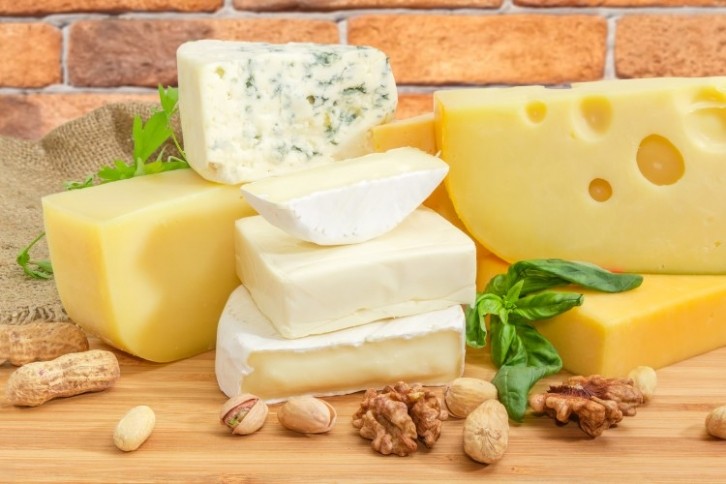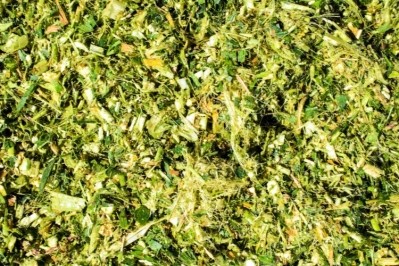Cheese intake could lower risk of dementia, study suggests

This was the conclusion of a group of Japanese researchers, who carried out cross-sectional data analysis provided by more than 1,200 adults aged 65 or over.
The study was conducted as part of broader research commissioned by Japanese dairy major Meiji Co., Ltd. and part-funded by the company.
The researchers examined if the consumption of cheese was associated with lower cognitive function in older people. Their cross-sectional analysis included 1,504 adults aged over 65 and suggested that cheese intake was inversely associated with low cognitive function – but there are caveats.
The missing link
Research into the effects of milk and dairy products intake have been conducted for decades. But while there is some scientific evidence of milk and dairy’s role in reducing the risk of dementia [12,13] or improving thinking speed [15], academics still don’t have sufficient proof that consuming dairy could help reduce the risk of cognitive decline, whether mild decline in cognitive ability or more serious conditions such as dementia.
In this study, the researchers wanted to examine the link between cheese consumption and cognitive function. They used MMSE scores (defining lower cognitive function as a score of 23 or lower) and cross-sectional data from two cohort studies – one involving 759 Tokyo-based women aged 65 or over, and a second one comprising 757 men and women aged 75-85. Of the 1,516 participants, 1,504 had indicated that they consumed cheese.
The researchers conducted interviews with the participants to determine their health status and diet, coming up with a dietary variety’ score based on how frequently they consumed 9 food categories including dairy; the researchers also calculated the participants’ body mass index, walking speed and hand and leg strength, as well as key blood indicators and global cognitive status (the latter via MMSE scores).
Of all study participants, 1,230 were determined to be cheese eaters. Specifically, 418 consumed it every day; 449 – once or twice a week; 358 – once every two days, and 287 did not eat cheese at all or not often enough. Processed cheese was the most commonly-consumed cheese type (eaten by 1,082 adults, or 65.7%) followed by ‘white mold cheese’ (252), fresh cheese (215), other unnamed cheese type (57) and blue mold cheese (41).
The health indicators of the cheese-eating cohort were then compared with those of the non-cheese eaters. To analyse these results, the researchers used three multiple logistic regression analyses and identified four variables that were considered significant independent variables for lower cognitive function: cheese intake, age, usual walking speed and calf circumference. In all three models, cheese was identified as a factor that was inversely associated with (i.e., reduced the risk of) lower cognitive function, even after adjustments for factors such as a history of anaemia and the participants’ milk intake.
“Although the present study shows an inverse association of cheese intake with lower cognitive function, it is not possible to elucidate the cause of this association from the results obtained from the cross-sectional data,” the researchers noted.
They added that the cohort of cheese eaters had significantly higher dietary variety scores than the non-cheese intake group. This could be down to cheese-eaters more balanced diet as a whole, except that the researchers’ analysis did not show this trait to be a significant factor for lower cognitive function, indicating that it’s possible that nutrients specifically found in cheese could support cognitive health.
Despite this, the researchers concluded that the link between cheese intake and cognitive function needed to be further investigated. “Whether cheese intake contributes to a reduced risk of cognitive decline cannot be elucidated from the present result, and should be further investigated in a longitudinal study,” the researchers stated.
QUOTE “Although the present study was an analysis of cross-sectional data of Japanese community-dwelling older adults, the results suggest that cheese intake is inversely associated with lower cognitive function even after adjusting for multiple confounding factors. In the future, a large-scale longitudinal analysis is needed to elucidate the causal relationship.”
Other than cheese intake, factors associated with lower cognitive function were age, walking speed and calf circumference.
Source:
Inverse Association between Cheese Consumption and Lower Cognitive Function in Japanese Community-Dwelling Older Adults Based on a Cross-Sectional Study
Authors: Kim, H., et al
Published: 18 July 2023, Nutrients
DOI: 10.3390/nu15143181












